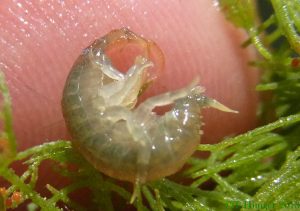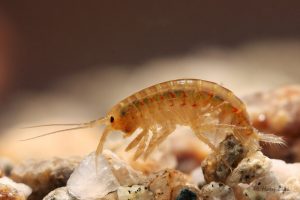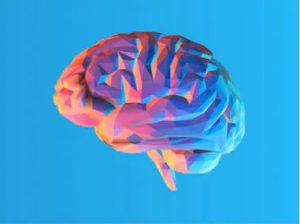Global warming isn’t just affecting the planet’s ice, it’s also affecting the habitats of many species on the earth. This, in turn, is causing these species to look for new homes elsewhere, which is resulting in competition between native species, and species that are newly moved, called dispersers. A recently published study from the Dr. Chelsea Little is looking into how this competition may be negatively affecting natural ecosystems as a whole and how we can better preserve them.
A Little about Dr. Little
We recently interviewed researcher Dr. Chelsea Little , a Killam postdoctoral research fellow in the Biodiversity Research Center at the University of British Columbia. In her latest publication in The Royal Society, she investigates the connection between food consumption and dispersal; how the migration of a species from one habitat to another might affect the functioning of a natural community called an ecosystem.
About Her Research
Dr. Chelsea Little’s studies were based on two aquatic species, Dikerogammarus villosus and Gammarus fossarum, that are found in freshwater systems of Switzerland. Based on experimentations conducted with respect to consumption of leaf litter, which plays a key role in nutrient recycling in freshwater ecosystems, it was seen that Dikerogammarus villosus as a dispersing species outcompeted the consumption of leaf litter three times higher than the native species Gammarus fossarum, further highlighting the consequences of dispersal syndromes on ecosystem function.

Dikerogammarus Villosus – Image from Flickr

Gammarus Fossarum – Image from ePhoto
In our video below, Dr. Little explains some of the questions we had about the implications of dispersal syndromes on our ecosystems.
To further investigate the methodology of Dr. Little’s research, our podcast showcases her findings, her procedure, the challenges she encountered, and her insights about the potential impacts of dispersal.
What’s in store for the future?
As the effects of climate change increase, many species are going to have to migrate away from their original habitats to more suitable ones due to ecosystem changes. Dr. Little states, ”This really is sort of at the nexus of two big challenges that we’re facing as humanity, like one is climate change, and a lot of species are going to be shifting where they live, expanding into new places, leaving other places – and the other is habitat loss.” This change could open up new interactions within the ecosystem as organisms find their new niches. In the long term, it is possible that these new dispersers might outcompete native species in their environment, which can cause a disruption in the food chain.
What should we do about this? It is beneficial to learn more about how ecosystems work as it educates us on how our actions can impact ecosystems through our Global Footprint. By managing our ecological footprint, we can reduce our impact on the Earth by practicing good sustainability methods such as recycling, composting, or reducing consumption of resources including water and electricity.
Written by: Edmund Kwan, Jennifer Yu, Gurkaran Bhandal, Harshitha Nagesh



